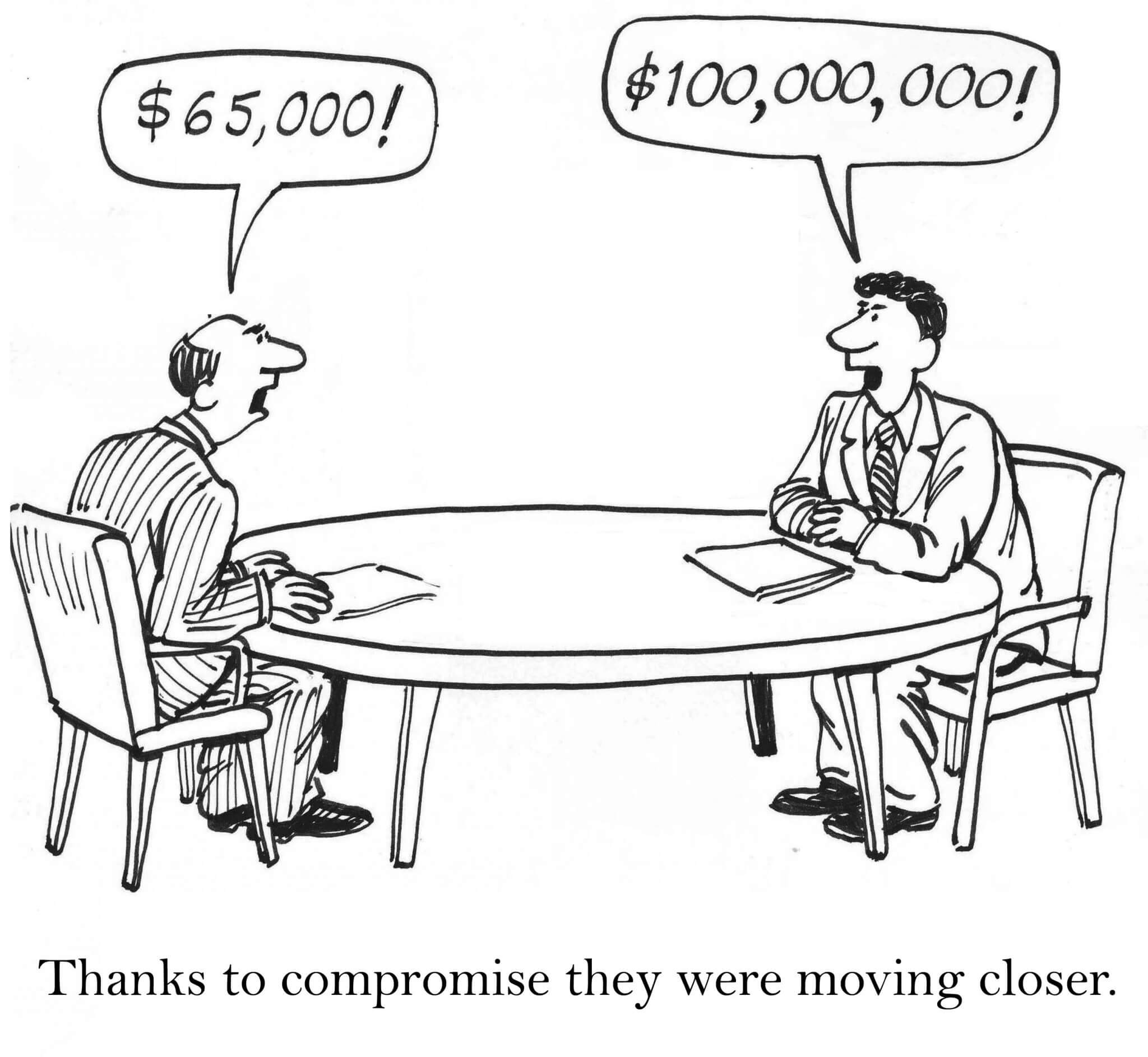Are you ready to discover an easy process to handle the “budget conversation,” get paid what you’re worth, and to help your potential clients make a decision to buy or not to buy?
Here’s the struggle one of my clients recently posted in a Facebook group we both are a part of:
“I’ve got my mindset. I’ve been taking action (revised website should be live tomorrow). But results are still elusive. My best guess is either my pricing is too high or I’m still not reaching the right clients or a combination of both. Both rejections have happened since I’ve implemented a package price as opposed to my former hourly rate. Here’s what’s happened in the last week:
1.) One potential client…. “After he receives my proposal he responded that he can’t afford it and will be doing it himself”…
2.) Another potential client… “When I provided him with the package price of (insert service) he responded that he can’t afford it”…
I replied to her with this…
“I don’t know your client but my gut tells me it may be your sales process holding you back, not the cost of your services. They don’t feel emotionally connected to the finished book and know exactly the value of your services.
Have you asked them: On a scale of 1-10 how important is (end result) to you? How long have you thought about (activity)? Have you started it in the past? What’s been holding you back from finishing (end result) on your own? Why is that an obstacle? What else has been holding you back? How would it feel to never finish (end result)? How will it feel when you do finish (end result)? Who will you share it with? How will they feel after seeing your finished (end result)?
Also, I have been there, seriously desperate for a sale, and unfortunately even though we try to hide it, I think desperation has a sound to it that comes through when we’re talking. Don’t be attached to the outcome. Be 100% attached to helping them achieve their goal. If money’s an obstacle, there’s always a way to work around it with payment plans, breaking the service into phases, etc. If someone wants it badly enough they will find a way to get it. You need to help them believe it’s possible, believe they can do it, and realize they need your help to get to the end goal.”
While helping people get emotionally attached to the outcome and becoming the trusted guide who can help them achieve it are important. It is also important to make sure to help those people who aren’t a fit decide not to work with you.
The Discovery Call and The Budget Conversation
When someone makes through your funnel, all the way to a discovery call with you, your next step is to make sure they are truly your ideal client and you can provide the transformation they are looking for. I use this time to ask additional questions to sort out the gems I’d love to work with.
“Do you have a budget and a timeline for this project?” is one of the questions I ALWAYS ask on my preliminary discovery call to determine if I want to invite a potential client into my discovery process.
- When you ask this question in the very beginning, it takes the awkwardness out of the relationship. It is clear that you are not volunteering your time.
- You become a consultant or a coach who is there to help your client get results, and your knowledge, skills, and background come with a price.
- You instantly position yourself as a person who knows their value.
- I’d much rather discover someone can’t pay at the beginning of a project rather than at the end, wouldn’t you?
- It also makes it easier for your clients because they are as busy as you are. It’s as frustrating to them to waste time and end up with a proposal that’s way outside their realm of possibility.
- It opens the door for discussing payment plans, different packages, etc. to address potential money objections.
What if they won’t give you a budget?
There are a few reasons that potential clients won’t give you a budget.
- Maybe they are afraid to give you a number because they don’t want to overpay if their budget was higher than what you were going to quote them. (Ironically, it’s almost always the other way around. Most clients underestimate what a project is going to cost because they don’t fully know what they need.)
- Maybe they don’t have a number because they don’t know how much your type of service should cost. It’s possible they were hoping you would let them know what the right range of expectation should be.
- Maybe they simply don’t yet know how much they have to allocate to your services. It’s hard to do research online to price services when so many service businesses don’t publicly advertise their pricing.
If they don’t give you a number, it makes it difficult to determine whether the person in front of you is going to be a candidate for becoming a client. After all, you do need to get paid for your services.
In this case, you are going to have to get the information another way. Here are a few you can try.
If you are selling Business-to-Business products or services, find out where they are in their business.
Have they purchased these services in the past? How long have they struggled with the situation? What packages and products do they sell and what are the price points of these items? How much is the lifetime value of a client or customer?
Ask the question in different ways.
It will help if you can get a good idea of how much money they generate as a business.
Ask them these questions:
- Have they purchased these services in the past?
- How long have they struggled with the situation?
- What packages and products do they sell and what are the price points of these items?
- How much is the lifetime value of a client or customer?
If you can get that information from them, you can do a bit of math in your head to give you an idea of whether they can afford your services. ‘
Brainstorm other ways to ask your clients about their budget.
Here are some examples:
- You might relate their website design to shopping for flooring, “Are we looking for vinyl flooring or exotic hardwood?”
- If you have different levels of packages, you might try asking them a question related to that, such as, “What package were you considering? The Basic, Complete, or Supreme Package?”
- You could ask them how much they are wanting to do themselves (which is a way business owners try to save money) by asking, “We’re you looking at a done-for-you approach or a done-with-you approach?”
Those are just 3 ways you can probe to see what kind of budget they are looking at.
You can also answer by giving your potential clients a range of your services.
A Discovery Call is probably not the best place to give a hard quote unless you are selling a specific package. One option to get a feel for what they can afford would be to offer your services as a ranger. You might say, “My starter websites range from about $2500-$3500 and include X, Y, and Z. Sites with more design customizations and bells & whistles like e-commerce and membership sites start around $5,000.”
This is a great way to give them options without pressuring them. Plus, if you are having a video call, you can gauge their emotional reaction visually.
What if you really are above their budget range?

Offer a down-sell
If they really want what you offer and the price is the ultimate issue, be prepared to offer a down-sell that can move them forward, even if it isn’t your main offer. Once they have fully utilized your down-sell and gathered more resources, they may become a good candidate for what they were looking at in the first place.
For example: If someone doesn’t take you up on your one-on-one coaching package you could say something like, “I do have a group coaching package available that is a lower investment. Would you like to hear more about it?” As a result, they are now feeling in control because they are asking you for more information rather than feeling like they are listening to a pitch-fest.
Notice that 1-on-1 coaching isn’t completely off the table. In fact, the group coaching experience may be what they need to springboard them into the 1-on-1 version.
Offer payment plans
Break their investment down into 3, 6, or 12 payments. You can do this if you have an e-commerce website with a subscription option. Or you can do this with Stripe or PayPal. (Check out my post from last week, The Entrepreneur’s Guide to Getting Paid Online, to learn how to set up a subscription payment plan on PayPal and Stripe.)
Bless a colleague with a referral
If your rates are beyond their budget, bless a colleague with a lead! Play matchmaker between your prospect and someone who offers different options that are more in line with your client’s financial goals. I promise it will come back to you in the long run!
How to prepare potential clients for a high-value sale
One way to give potential clients a general sense of what you will charge is to show them that what you do is high-value on your website. Your website is going to be a formative experience for them, so you want it to lay the foundation for when you get them on a call.
We’ve been building websites for years designed to get visitors to your website in a funnel that takes them eventually on the phone. Let’s talk about how we can do that for you.
Get on the calendar for a 15-minute, no-obligation Clarity Call. Just schedule today and start the ball rolling.

Heather is a website designer & marketing strategist who specializes in helping service-based business owners get more clients through online marketing. In addition to owning Wise Owl Marketing, Heather married her sweetheart 29 years ago. Together, they have 3 active kids and a sweet old chocolate lab.

Do you need help with a custom website or marketing funnel?
Book a Free Marketing Clarity Call today!

